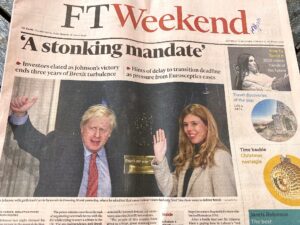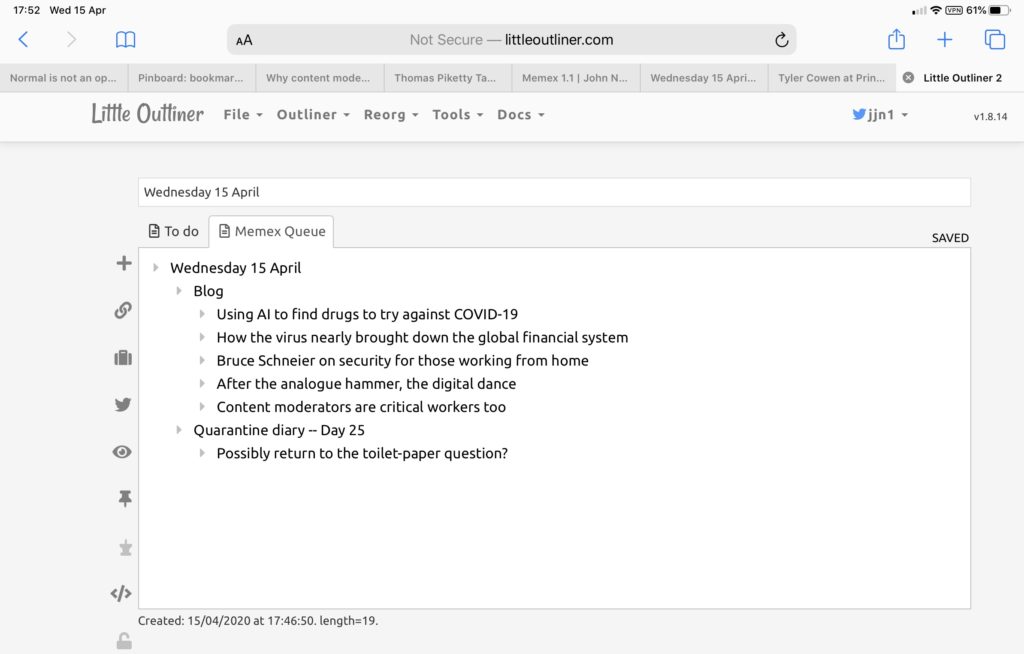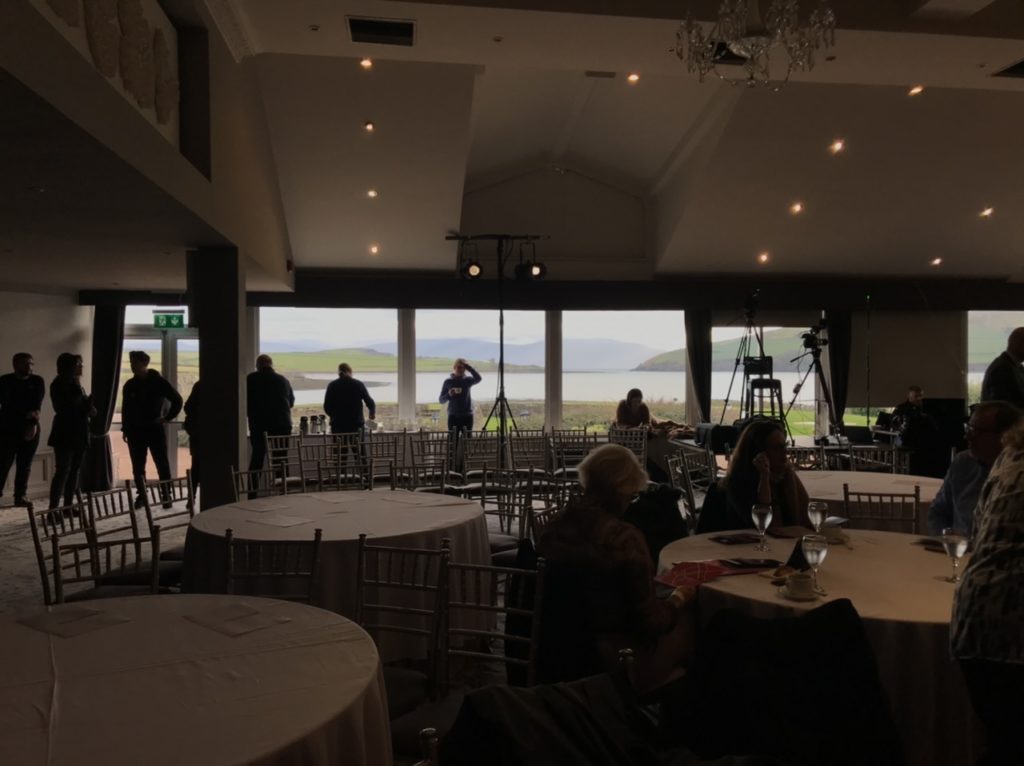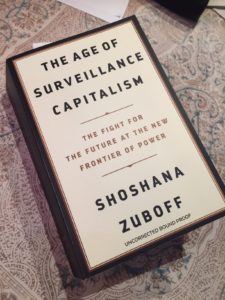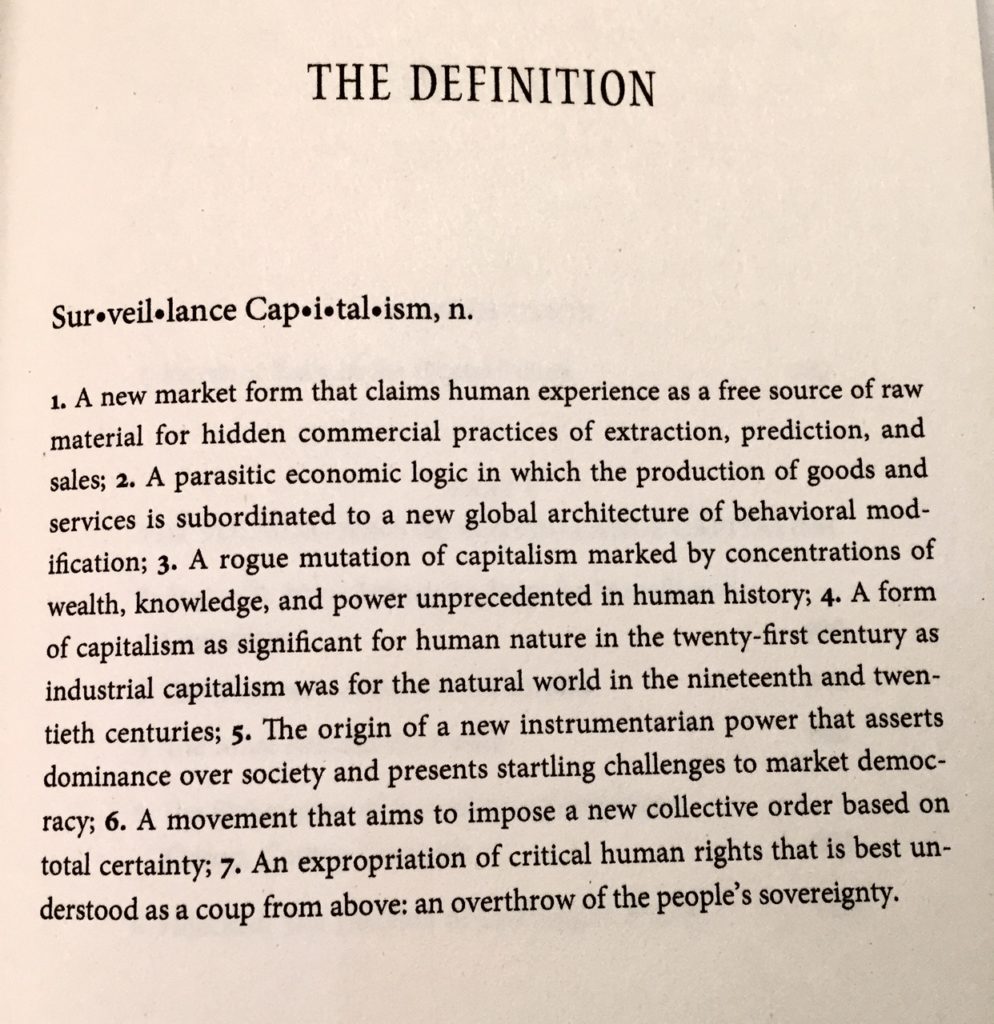Quote of the Day
“Really I suppose what I hate myself most on is showing other people where to dig, not having time to do intensive and exclusive digging myself. I am a dowser and not a navvy.”
- Queenie Leavis
A bit like a blogger, really.
Musical alternative to the morning’s radio news
I struggled with this today, given the thoughts below.
What I kept thinking of was the famous reply that Ben Franklin gave to the woman who accosted him as he emerged from the final day of deliberation of 1787 with the question,”Well Doctor, what have we got, a republic or a monarchy?”
Franklin answered, “A republic… if you can keep it.”
In the end, I came up with this:
Joan Baez singing The Battle Hymn of the Republic in 1963.
The sobering truth
From this morning’s Washington Post…
The inescapable reality of the election results is that Trumpism remains a powerful current in American politics. It’s akin to political tendencies in other parts of the world where strongmen have co-opted democracies. The president’s brand of demagogic nationalism, his ceaseless campaigning through every year of his term and his unrepentant embrace of divisive messaging and tactics have clearly mobilized tremendous support.
“Trump over-performed in myriad polling measures. There would be no landslides, only squeakers and clenched jaws — and, possibly, court fights,” wrote my colleague Monica Hesse. “Win or lose, Trumpism will not have been swept into the dustbin of history; it will remain all over the furniture. It’s part of the furniture.”
Indeed, it may wholly define right-wing politics in the United States for years to come. “Trumpism might be becoming America’s version of Peronism,” tweeted Dan Slater, director at the Weiser Center for Emerging Democracies at the University of Michigan, referring to Argentina’s own legacy of populist nationalism. “Highly mobilizing, highly polarizing, not always in power, but never going away.”
And this from Janan Ganesh of the Financial Times…
Naturally, a Biden win, even a slight one, is a better outcome for liberalism than Hillary Clinton’s loss in 2016. But the absence of a landslide and a strongly Democratic Senate will sting. Four years ago, the party could cite excuses and circumstances: an unpopular candidate, an opponent with no political history to attack.
This time, they have no such solace. Democrats nominated a seasoned and unobjectionable moderate. They ran on the fundamentals of public health and prosperity. They amassed a Fort Knox of campaign money. They had the encouraging precedent of the 2018 midterm elections. Above all, they had Mr Trump’s ethical and administrative record to go after. All the raw materials were there for a crushing victory that would double as a purgative moment for the republic: a clean-up of sorts.
Yes, a Californian running mate was never ideal — the election hinges on the Midwest and the south-east — but there was no clear alternative to Kamala Harris. As for his avoidance of mass political rallies, Mr Biden could hardly run as a slayer of the coronavirus pandemic while holding them.
At this point in the search for unforced errors, the trail runs cold. Liberals are left to accept a deeper fact about the US. Far more than when the phrase started doing the rounds a generation ago, this is a 50-50 nation, or thereabouts.
And so the question is: how did that come to pass? That’s a long story, and some of it is peculiarly American (particularly the racism that runs through that society like the message in a stick of Blackpool rock). But not all of it; there’s an element of it also that other Western democracies share, namely that this pathological polarisation has been a long time building — by my reckoning since the collapse of the post-war Keynesian order from 1971 onwards, and the subsequent ideological infection of ruling elites in most democracies by neoliberalism. We are now reaping the whirlwind of what we sowed in those decades.
And Trumpism isn’t going away. It’s the new Peronism. Time to brush up on Argentinian history.
Other, possibly interesting, links
- How Stanford voted. Interesting (and, to me, surprising). Very few Republicans there, it seems. Link
- First words spoken or sent on various communication systems. Link
- So who emptied that Bitcoin wallet of nearly a billion dollars? Now we know — or at any rate Uncle Sam does: the hacker who did it (“Individual X”, if you please) panicked after being threatened by the original owner of the wallet (now behind bars) and handed the loot over to the Department of Justice. Link.
This blog is also available as a daily email. If you think this might suit you better, why not subscribe? One email a day, delivered to your inbox at 7am UK time. It’s free, and there’s a one-click unsubscribe if your decide that your inbox is full enough already!


